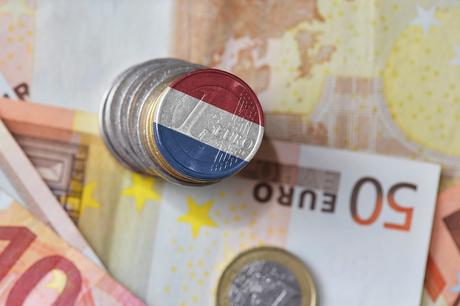
Whilst is hard to pin down the expat number of expatriates living in the Netherlands, the Dutch news estimates that between 39,00 and 75,000 reside in the Netherlands. Its accommodative nature and laid-back style mean that many expats acclimatise to their new lives and routines very quickly; resident expats even have the ability to vote a right which is rarely offered.
The Netherlands is often referred to as the gateway to Europe due to its canal networks to Belgium, Germany and France. Its population exceeds 16m meaning that it is the one of the most densely populated countries in Europe. Winters tend to be mild and summers are cooler than other European destinations.
Expats that have taken the plunge typically report that they have often received a warm welcome, with those who didn't have the fortune of a pre existing Dutch or expat friendship network, easily making friends. They also report that the expat community is very tight knit and friends can become family.
The Dutch might come across and very direct, however their approach is just one of honesty, so never be offended. It can come as a bit of a culture shock to those who are never wishing to offend but try to be thick skinned and just accept their different approach.
Birthdays are celebrated fiercely in Netherlands with circle parties. Essentially you greet the host and then slowly greet the rest of the family including spouse, children and close relatives. All of the meeting and greeting is done in a circle formation, at times this can become quite peculiar especially if conversation loses momentum. Fortunately, alcohol is served to keep discussion flowing, nonetheless It can be strange when experienced for the first time.
Despite the peculiar birthday celebration format and direct approach life in the Netherlands can be great when approached correctly. It is a great location to live, work and raise a family.
Most popular locations for Expats
Whilst it will be unlikely to surprise you that Amsterdam is the most popular location for expats moving to Holland these are the other 9 most popular destinations.
- Amsterdam - The capital city and most populated in the Netherlands. It has a population of 862,000 in the heart of the city and a further 1,3m on the outskirts. Occasionally referred to the Venice of the north due to its network of canals.
- Utrecht - the fourth largest city and a municipality, Utrecht has a population of 357,000 and hosts the largest university in holland; Utrecht University. The city is located in the centre of Holland.
- Delft - Located in the south between Rotterdam and the Hague. Delft is a popular tourist hot spot and is regarded for its technological development.
- Amersfoort - A province of Utrecht with a population of 156,000 making it the 15th largest in the country. The city celebrated its 750th anniversary in 2009.
- Zwolle - located in North east Netherlands Zwolle has a population of 127,000, Zwolle is capital of Overijssel and the second largest principality behind Enschede.
- Almere - is the newest city in the Netherlands and sits on reclaimed land. The first constructed dwelling was finished in 1976 and now 207,000 call Almere home.
- Haarlemmermeer - located in the north of the Netherlands, the main town of Haarlemmermeer is Hoofddorp which boast a population of 70,000. The country's main airport Schiphol is located here.
- Arnhem - located in the eastern part of Holland. The city is situated in on the banks of the Nederrijn and Sint-Jansbeek rivers. Population totals 159,000 and Arnhem is considered one of the larger cities in Holland.
- Groningen - is both the capital city and primary municipality of the eponymous province. It's the largest northern city in holland with a population of 231,000
- The Hague - can be found on the western coast of Holland. The city hosts the international court of justice and the Dutch government and is the third largest in the Netherlands.
Whilst typically moving to the Netherlands will be without a hitch, please ensure you have considered the below points before making your move. Failing to plan is planning to fail.
Source an approved employer - only certain employers in the Netherlands sign up to the IND of Dutch immigration and naturalisation service, meaning you'll need to source an employer which has registered for the scheme.
Secure a formal job offer - once you've found an accredited employer and negotiated an offer, ensure you sign a formal contract.
Highly skilled workers must earn a minimum of €3,108 per month if under 30 and €4,240 if over 30.
Get your documents in order - You and your new employer will together have to complete a raft of paperwork in order for you to gain residency. Separate documentation will be required for family members.
You'll also need a translated copy of your university degree in order to qualify for the 30% rule which is covered below.
Get your residency (MMV) from the embassyA decision on your application can take up to 90 days confirmed either way. If approved, you'll have a further 90 days to collect from a Dutch embassy. You must ensure you take your passport and a new passport photo. It then takes roughly 10 days to receive the passport back with your visa.
Set up a currency transfer accountOnce you have concluded the formalities of residency your move becomes real. In the vast majority of cases you will either need to pay for rent up front or convert your local currency into Euros. Specialists will be able to guide you around the pitfalls of financial markets and save you a lot of money. Their services are often fee free and they offer the flexibility of trading online of via telephone.
Move to the NetherlandsYour residency MVV allows you enter the Netherlands within 30 days of receiving it. Once there you'll need to register at your local municipality within 5 days. You or your new employer can book an appointment at the local expat centre or government building. It wont cost a penny but is advised that you book up to 2 weeks beforehand in order to avoid disappointment, make sure your employment contract is with you for this meeting. Your residency can then be collected at this same location roughly 14days after.
Establish a local bank accountBefore your first month's salary is cashed you will need to get a bank account in place to receive your pay. An account can be opened locally with leading banks such as ABN Amro, ING, Rabo Bank and SNS-Bank being amongst the most popular for expats.
To set up your account you will need the following- Valid photo ID - passport is best
- Copy of your property rental agreement
- Citizen number - (known as burgerservicenummer, it can be located on the following documents - your Dutch identity card, in letters the Dutch tax authorities send you and on salary slips)
- If from outside of the EU, you will have to bring along your residence permit
As mentioned in the above point high skilled workers can apply for the 30% which allows for a 30% tax reimbursement from your payroll. It also allows you to exchange your drivers license for a Dutch one. A real perk if you are considering staying.

